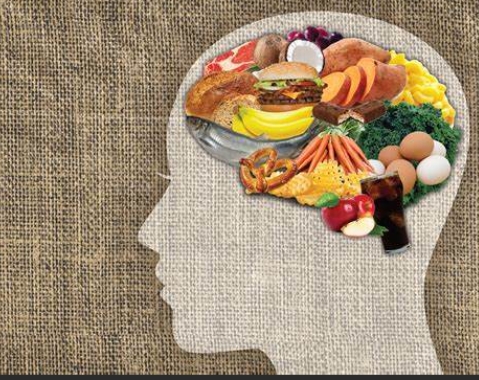When we think about maintaining good health, we often focus on physical fitness, exercise, and preventing chronic diseases. However, one area that is sometimes overlooked is the direct connection between diet and mental health. The foods we consume not only affect our physical well-being but also play a significant role in how we feel, think, and function mentally. Research is increasingly showing that a balanced diet is essential for maintaining optimal mental health, mood stability, and cognitive function. Let’s explore how nutrition influences our mental well-being and how a balanced diet can help improve our emotional health.
The brain is one of the most energy-demanding organs in the body, using up to 20% of the body’s energy at rest. As such, it requires a constant supply of nutrients to function properly. Key nutrients such as omega-3 fatty acids, antioxidants, vitamins, and minerals all contribute to brain health. For example, omega-3 fatty acids, found in fatty fish like salmon and sardines, are essential for maintaining healthy brain cell membranes and promoting communication between brain cells. These healthy fats also play a role in reducing inflammation in the brain, which is linked to several mental health conditions, including depression and anxiety.
Antioxidants, such as those found in fruits and vegetables, protect brain cells from oxidative stress and free radical damage. Berries, leafy greens, and other colorful fruits and vegetables are rich in compounds that help maintain cognitive function and protect against neurodegenerative diseases like Alzheimer’s. Vitamins like B6, B12, and folate are also vital for mental health, as they support the production of neurotransmitters that regulate mood, sleep, and stress.
It’s well-known that our emotions are influenced by the way we feel physically, and diet plays a direct role in regulating our mood. Blood sugar levels can greatly affect how we feel emotionally. Diets high in refined sugars and processed foods can lead to fluctuations in blood sugar, causing feelings of irritability, mood swings, and even anxiety. Conversely, a diet rich in complex carbohydrates like whole grains, legumes, and vegetables helps regulate blood sugar levels, providing a steady supply of energy to the brain and reducing the risk of mood swings.
The gut-brain connection is another powerful link between diet and mental health. The gut is home to a large portion of the body’s serotonin receptors, the neurotransmitters responsible for regulating mood, happiness, and well-being. The foods we eat influence the health of our gut microbiome, which in turn affects serotonin production. A diet high in fiber, probiotics, and prebiotics—found in foods like yogurt, kefir, kimchi, and whole grains—can promote a healthy gut microbiome and support mood regulation.
Inadequate intake of essential nutrients, such as iron, zinc, and magnesium, can also lead to feelings of irritability, anxiety, and depression. Zinc, for instance, plays a role in the production and regulation of neurotransmitters like dopamine, which helps control mood and emotional responses. Magnesium is crucial for relaxation, and a deficiency can contribute to symptoms of anxiety and restlessness. Eating a balanced diet that provides adequate levels of these nutrients can help improve mood and reduce the risk of mental health issues.
Protein is another essential component of a balanced diet that plays a crucial role in mental health. Protein provides the building blocks for neurotransmitters, which are responsible for communication between brain cells. Amino acids, the building blocks of protein, help regulate the production of neurotransmitters like serotonin, dopamine, and norepinephrine, all of which influence mood, focus, and overall emotional well-being.
For example, tryptophan, an amino acid found in turkey, eggs, and nuts, is a precursor to serotonin, the “feel-good” neurotransmitter that promotes feelings of happiness and calm. A diet rich in protein helps maintain adequate levels of these important neurotransmitters, leading to better mood regulation and mental clarity.
Chronic inflammation has been linked to various mental health conditions, including depression, anxiety, and cognitive decline. Inflammation can occur as a result of poor diet, lack of exercise, stress, or environmental factors. Diets rich in anti-inflammatory foods, such as omega-3 fatty acids, turmeric, ginger, and green tea, can help reduce inflammation in the body and brain. By incorporating these anti-inflammatory foods into your diet, you can support mental health and potentially reduce symptoms of conditions like anxiety and depression.
Dehydration can negatively impact mood, cognitive function, and overall mental clarity. The brain is made up of about 75% water, and even mild dehydration can impair concentration, memory, and the ability to think clearly. Dehydration has also been linked to increased feelings of anxiety and irritability. Therefore, staying adequately hydrated is essential for maintaining mental health. Aim to drink plenty of water throughout the day and consider incorporating hydrating foods, such as cucumbers, watermelon, and leafy greens, into your diet to support brain function and mood stability.
To reap the benefits of a diet that supports mental health, here are some practical tips to consider:
- Prioritize whole, nutrient-dense foods: Focus on a variety of fruits, vegetables, whole grains, lean proteins, and healthy fats. These foods provide essential nutrients that support brain health and mood regulation.
- Avoid refined sugars and processed foods: Minimize consumption of sugary snacks, refined carbohydrates, and processed foods that can lead to blood sugar fluctuations and mood swings.
- Incorporate more omega-3 fatty acids: Include fatty fish, walnuts, and flaxseeds in your diet to promote brain health and reduce inflammation.
- Support gut health: Eat probiotic-rich foods like yogurt, kefir, and fermented vegetables, along with prebiotic foods like garlic, onions, and whole grains, to maintain a healthy gut microbiome.
- Stay hydrated: Drink plenty of water throughout the day and consume water-rich foods like fruits and vegetables to maintain mental clarity and reduce stress.
- Eat a variety of proteins: Include sources of protein such as lean meats, fish, eggs, legumes, and nuts to support neurotransmitter production and mood stability.
In conclusion, a balanced diet plays a critical role in maintaining good mental health. The nutrients found in whole foods support brain function, mood regulation, and overall emotional well-being. By making mindful choices about the foods we eat, we can improve our mental clarity, reduce stress and anxiety, and promote a sense of emotional balance. Nourishing both the body and mind with a variety of nutrient-dense foods is one of the best ways to support long-term mental health and well-being.





